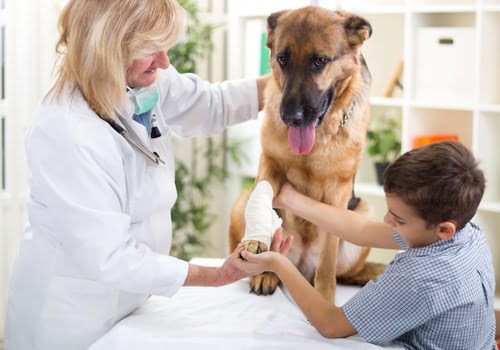Are you ready to earn your Doctor of Veterinary Medicine? Are you looking for a quality veterinary school? If so, check out this salary and information to get started!
Ask any little girl or boy what they want to be when they grow up. In many cases, they are likely to reply, “a veterinarian!”
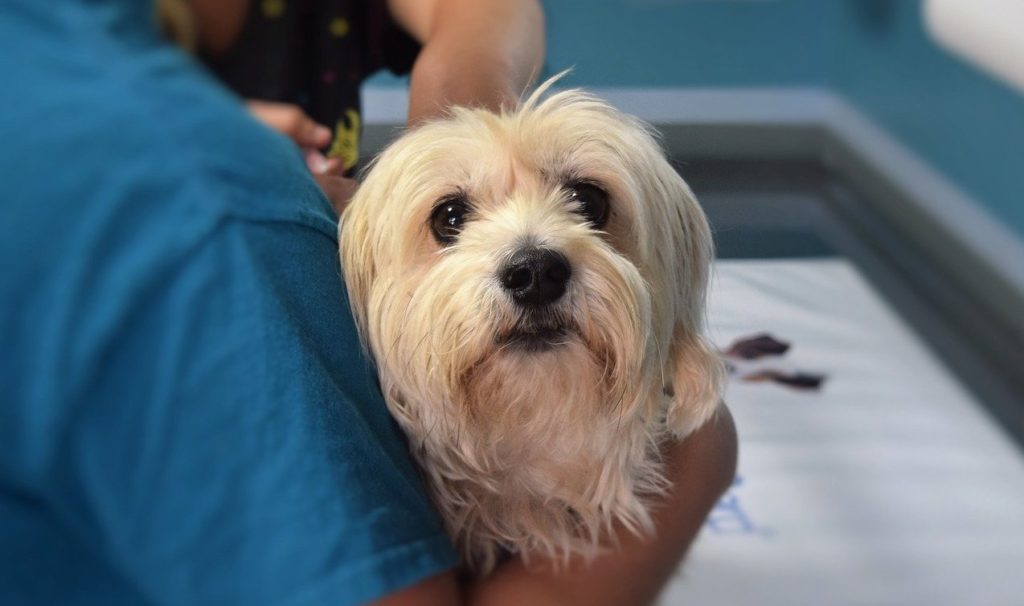
Children create special bonds with animals early in their lives and usually maintain their love for them throughout their adult lives as well.
Pets often bring families together and become beloved family members themselves. Not everyone goes on to fulfill their childhood dream of becoming a veterinarian, but if you feel that it could be your career path, you may be one of those who actually pursue a veterinary medical profession.
However, before making a decision to pursue a degree in veterinary medicine, veterinary students should expand their knowledge of what the veterinary specialist’s work actually is.
The love for animals is significant in this field, but it is certainly not enough to make it through veterinary college – current students also need to have essential skills and knowledge, and they can be gained in no other way than just studying for at least a few years and doing a lot of practical exercises.
Check this out: The Best Doctor of Immunology Degree Programs: Salary and Information
Depending on your ambitions, you can be an excellent local vet who helps numerous pets from the whole neighborhood or, after a lot of hard work, even become a member of the American Veterinary Medical Association. And both of those jobs are vital for animal health!
In order to expand your knowledge of veterinary medical studies, at least to a certain extent, we have prepared a list of some frequently asked questions along with answers. We hope that they will turn out to be helpful for you and make it a bit easier for you to make a decision to become a veterinary doctor or not!
Please note: Getting a DVM in Veterinary Medicine is not available exclusively online through distance learning, but you can do a large portion of the work remotely. Due to the excessive amount of practical work and clinical training skills required in this field, 100% online programs are not possible in veterinary medical training. Hands-on learning is a must-have!
However, there are several reputable veterinary medical colleges that offer exceptional Doctor of Veterinary Medicine (DVM) programs on-campus in combination with off-campus distance learning online work and are accredited by the American Veterinary Medical Association (AVMA) in your area or hopefully close by.
Frequently Asked Questions
What does a Veterinarian do?
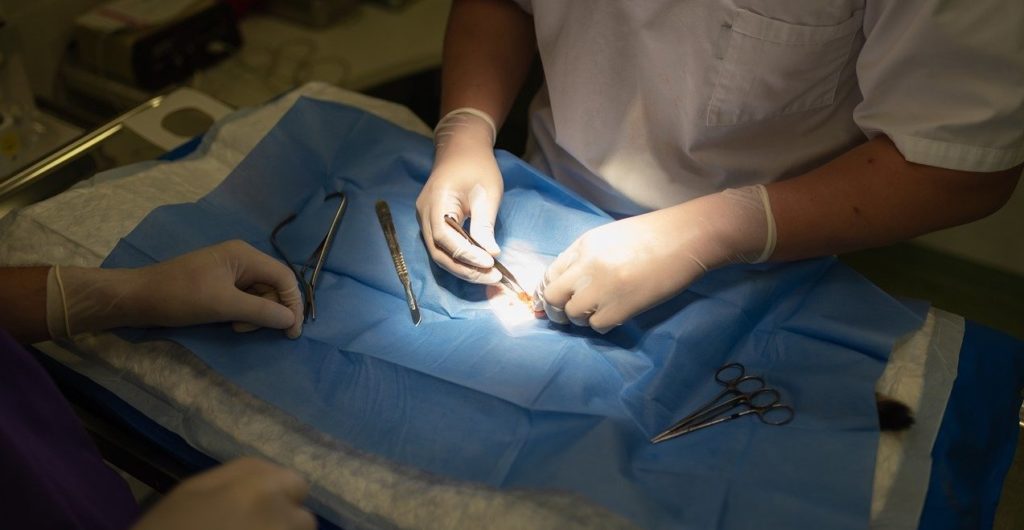
As a veterinary doctor, you will be responsible for providing preventative medicine for dogs, cats, birds, fish, rabbits, and all the common pets found at home. In serious cases, you will also perform surgeries so as to save a pet’s life.
Small animal vets typically spay and neuter animals, treat wounds, take X-rays, set broken bones and care for geriatric pets. Veterinarians are also permitted to dispense medications, give vaccines, and perform euthanasia if necessary.
However, pets are not the only specialization you can have as a Doctor of Veterinary Medicine. Some veterinarians also examine and treat horses, cows, pigs, goats, sheep, and other farm animals outside of an animal clinic. Often, entire herds must be treated for diseases because they get infected by each other easily.
Veterinary doctors advise farm owners on the proper care and nutrition for their herds to ensure healthy animal production. In this way, a Doctor of Veterinary Medicine can use preventative medicine to prevent problems that could appear in the future due to the lack of knowledge and implementation of bad practices on the farm.
Depending on your interest, you may also choose to conduct meaningful research with your veterinary education or teach at the postsecondary level. Thanks to experts working in such institutions, like the American Veterinary Medical Association, this field is constantly developing, and continuing education is vital.
Veterinary medicine researchers look for more effective ways to diagnose, prevent, and heal animal health problems. Usually, they study serious illnesses like cardiovascular disease or animal cancer care because they want to discover better methods, tools, and medicines to let animals be with us as long as possible and make their lives less painful.
They often have animal models for a particular research project, and during the whole process, they provide them with proper care and attention. Thanks to their work, not only animal health can be improved, but also human health because it sometimes happens that a virus mutates and transfers to people’s organisms as well.
Veterinary medicine researchers helped to conquer, for instance, yellow fever or malaria.
How do I earn my Doctor of Veterinary Medicine degree?
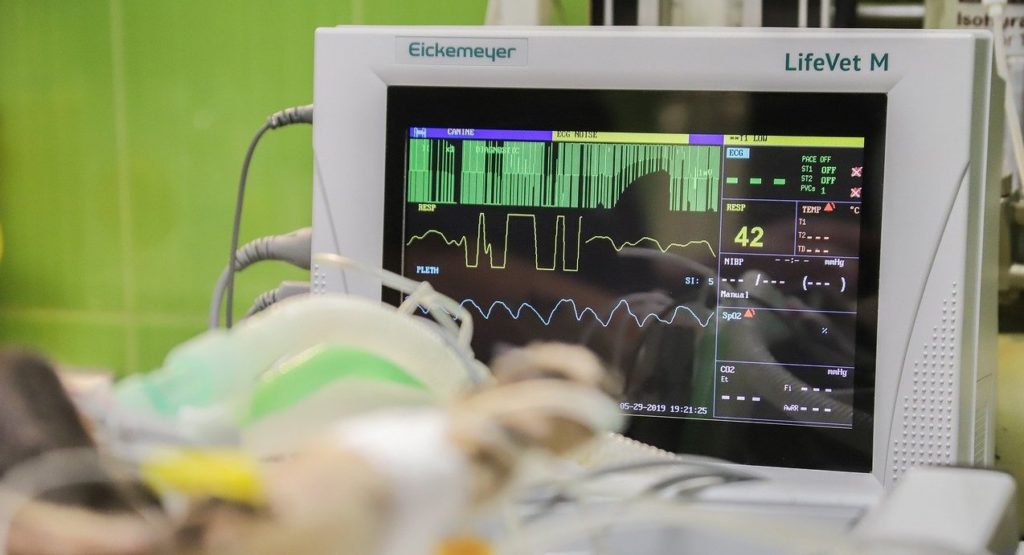
Students must complete a four-year program focused on veterinary medicine to receive their DVM degree, which is required to be a veterinarian.
Do you have your bachelor’s degree already? You may or may not need one, depending on your school’s requirements. However, you will need to have extensive prerequisite coursework under your belt to enter a DVM degree program.
Undergraduate study requirements include strong foundations in math and sciences, such as:
- biology,
- chemistry,
- genetics,
- calculus or statistics,
- animal science,
- and physics.
Some schools also offer pre-veterinary coursework that is included in a DVM degree program, which is very helpful.
To enroll, you will need to complete your application and pay your application fee. Also, you are required to submit your official transcripts, your GRE or Veterinary College Admission Test scores, letters of recommendation, essays, and a list of school and community extracurricular activities, along with your previous experience related to the medical field.
Applying for a DVM program can be very competitive due to the limited amount of colleges that offer accredited programs. For this reason, it often happens that only people with the highest scores are admitted, so if you plan to be a veterinary medicine doctor, you should work hard from the very beginning!
But it is a good thing – we all want only fully competent and skillful people to take care of our animals because it reduces the probability that something goes wrong in the treatment.
Healing living creatures, both animals and people, demands outstanding carefulness and precision, as well as extensive knowledge of biology, chemistry, and physics.
Being a veterinary medical specialist can sometimes be even more demanding than being a human doctor because you cannot ask your patients about how they feel and what pain they’re experiencing. What is more, veterinarians have to know the diseases and body characteristics that are specific to particular species.
Even if a veterinary medicine doctor specializes in pets only and does not have to know much about farm animals, they have to know everything about at least both cats and dogs and sometimes also rabbits, hamsters, birds, etc.
DVM degree coursework includes foundational classes such as:
- Anatomy,
- Histology,
- Medical Pathology,
- Bacteriology,
- Infectious Diseases,
- Immunology,
- Parasitology,
- Pharmacology,
- Physiology,
- and surgical techniques for the first two years.
Years three and four include necessary clinical work and laboratory sessions, and you may be asked to choose a specialization on that point. The internship experience may last up to a year.
Practical classes are essential in working with living creatures, so it is understandable that every college of veterinary medicine demands quite many of them. After working with animal patients for a long time, you will feel more confident about your skills, and you will know what to focus on and what to avoid.
Remember that being a veterinary medicine doctor does not mean you will work with animals only – you will also have to talk to their owners, discuss the possible solutions with them, try to convince them to choose the best one, explain to them how to take care of their pets or farm animals, and also sometimes, unfortunately, deliver the sad news in the most delicate way possible.
Practice makes perfect, as they say, and in veterinarian schooling that aims to save animal lives, it is particularly crucial.
What are the differences between a DVM degree and a Ph.D. in Veterinary Science?
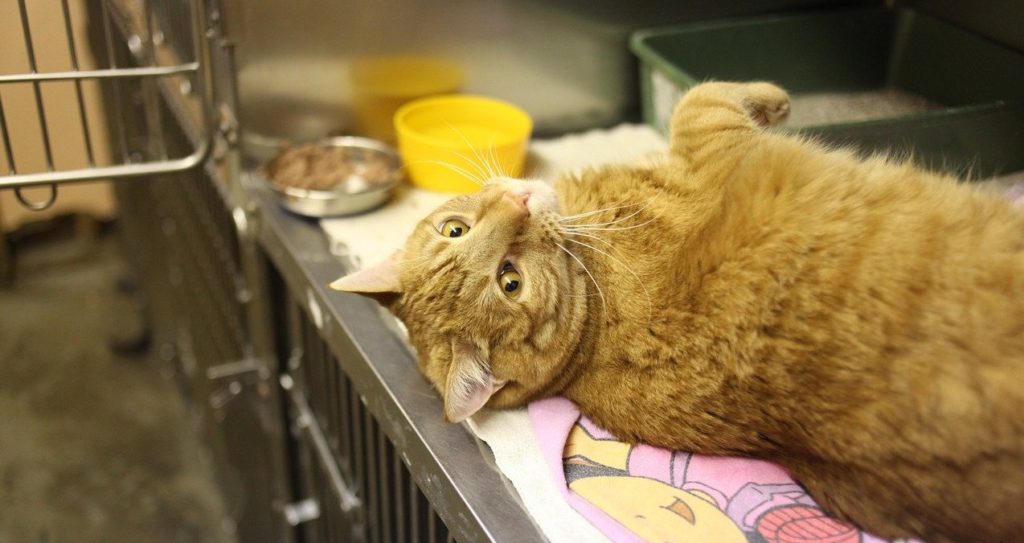
After receiving your DVM degree, you may want to pursue your Ph.D. degree in veterinary medicine. It is worth knowing that some schools for vets offer a combination of Ph.D. and DVM degree programs.
As you complete your DVM requirements, you can then conduct your own research project in a specialization that interests you, earning your Ph.D. as well. PhDs concentrate on research and may work at laboratories, contributing to the pool of veterinary knowledge.
If you wish to concentrate on research only after earning your bachelor’s degree (and forego the DVM degree), you may opt to enter a doctoral program that will allow you to earn a Ph.D. (it usually takes about five years), focusing entirely on the field of research in veterinary science.
What Kind of Salary Can I Expect as a Veterinarian?
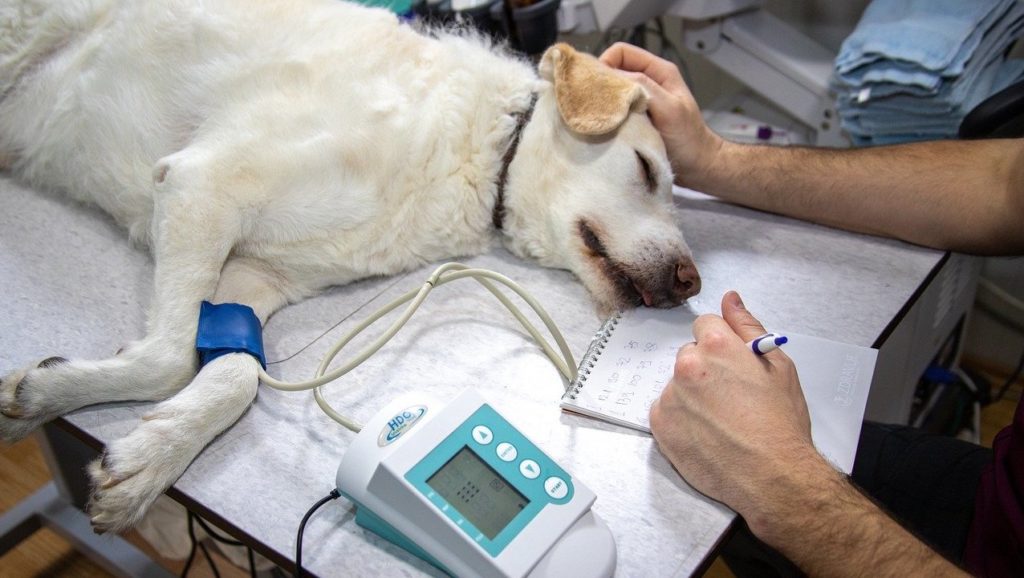
As of May 2022, the BLS reported that the median wage for a veterinarian was $103,260 annually. However, the highest 10 percent earned more than $174,500 per year. Careers in veterinary medicine are projected to increase by 20% between 2022 and 2032. You can expect to work in clinics, small and large farms, animal hospitals or sanctuaries, and zoos, or choose to open your own private practice.
Moreover, research laboratories and universities also hire veterinarians. Apart from that, they can choose to work for pharmaceutical companies that develop, test, and distribute drugs for animal consumption. It is a very significant work because many of the medicines produced for people are either not efficient or even dangerous for animals. Their organisms are different, so they need separate drugs adapted to specific conditions in a particular species.
If you are very good at chemistry, you can choose such a specialization in a college of veterinary medicine and take care of the drugs that help suffering animals feel better!
Do I need a license to be a Veterinarian?
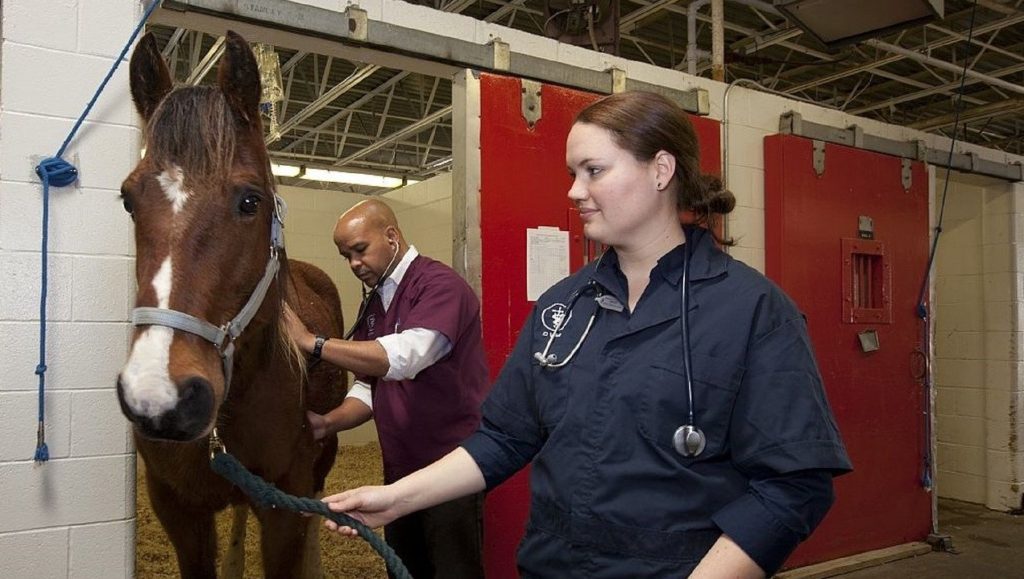
Yes, all states require veterinary medicine doctors to pass the North American Veterinary Licensing Examination to gain licensure. If your state requires it, you may also be asked to pass a jurisprudence examination.
Apart from that, Board Certifications are also available. It is also worth knowing that it is required to continue your education to maintain licensure. Before applying for a school for vet doctors, make sure to check your state’s regulations for testing and licensing requirements carefully.
Are there other options in the field of Veterinary Medicine in which I can utilize 100% online learning opportunities?
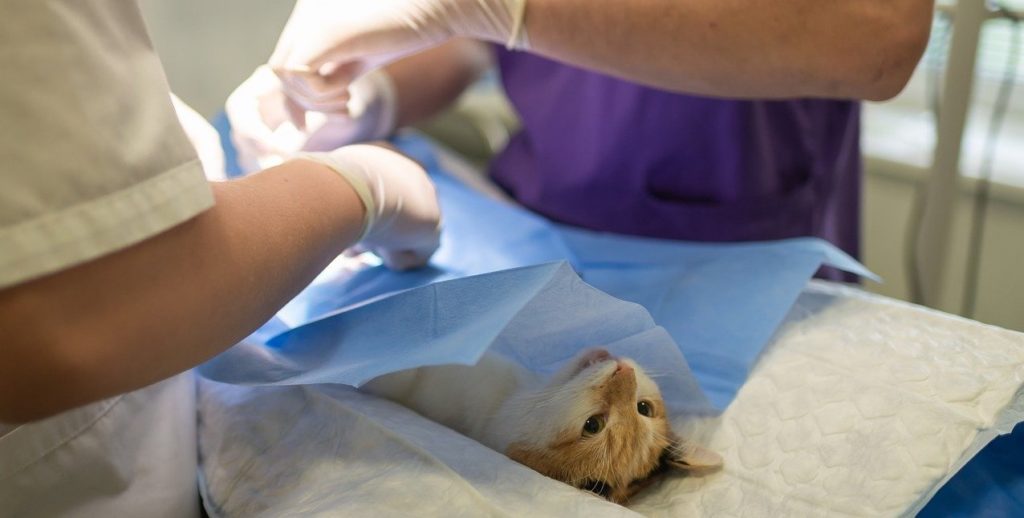
Veterinary career options do vary. There’s something for everyone! Most undergraduate work can be completed through a 100% online distance learning format before entering a DVM program. In addition, if you are interested in becoming a veterinary assistant or technician, you can probably find an online program without too much effort.
Technician responsibilities include:
- restraining animals,
- preparing lab samples,m
- maintaining files and finances,
- answering phone calls,
- and scheduling appointments.
In this capacity, an associate degree is all that may be required. It is because you do not have to deal with animal health directly, so you do not require so much practice. Contrary to veterinary medicine doctors, you will not be entirely responsible for healing any living creatures but just help the specialist.
Still, it is significant work because, in this way, you can make a veterinarian’s life easier and let them focus on their tasks while you are taking care of the office work or making some preparations for a medical procedure.
What schools offer a DVM degree program?
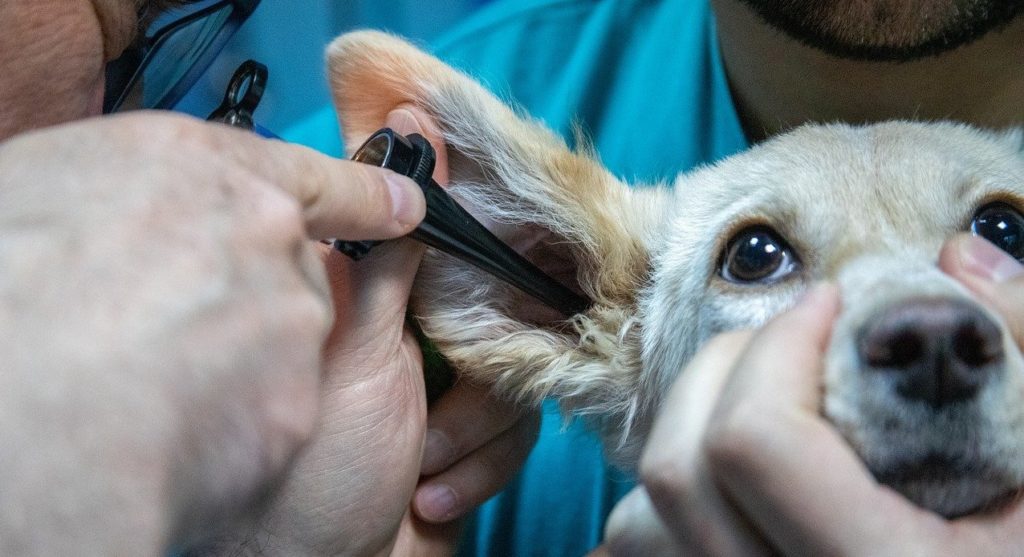
Fortunately, there are many veterinary schools for you to choose from. Some of them are specialized in this field only, but you can also apply to a famous general university that has such a course in their offer, among many others.
- One of the most popular ones is the Colorado State University, located in Fort Collins, CO. They provide their students with an opportunity to earn a doctorate on-campus through their Professional Veterinary Medical Program.
- Other on-campus programs include Michigan State University in East Lansing, MI, which offers a program in the Doctor of Veterinary Medicine, similar to Cornell University in Ithaca, NY.
- In addition to that, the University of California – Davis, located in Davis, CA, offers students a Doctor of Veterinary Medicine as well.
- If you live near Raleigh, NC, you can attend the North Carolina Veterinary Medical School to earn a DVM degree through their Professional Program.
Additional Info: The Best Doctorate in Medicine (M.D.) Degree Programs: Salary and Information
Best Doctor of Veterinary Medicine
Colorado State University

Program Standouts:
The Doctor of Veterinary Medicine at Colorado State University is consistently ranked among the best in the country by ‘U.S. News & World Report.’ The program was one of the first to teach clinical communication skills, veterinary ethics, and practitioner wellness.
With a reputation reaching back over 100 years, the veterinary program at CSU now has four academic departments which provide in-depth scientific as well as medical knowledge to future veterinarians.
Campus Location: Fort Collins, CO
Accreditation: Colorado State University is accredited by the Higher Learning Commission
Admission Requirements:
- Prerequisite Courses
- Experience
- Personal Statement
- Letters of Recommendation
Course Sample:
- Foundations of Veterinary Medicine
- Immunology
- Neurobiology
- Parasitology
Degree Outcomes: Graduates of a Doctor of Veterinary Medicine degree program have multiple career options, including serving as a private practitioner, working to prevent disease in local communities, or pursuing a career at a biotechnology company.
LEARN MORE ABOUT THE DOCTOR OF VETERINARY MEDICINE DEGREE PROGRAM AT MICHIGAN STATE UNIVERSITY
Michigan State University

Program Standouts:
With a history of teaching veterinary science courses that reach back to 1855, Michigan State University’s College of Veterinary Medicine became a degree-granting program in 1910. Over a hundred years later, the College stands as one of the top veterinary schools in the country.
Two service units, several research centers, and four biomedical science departments grant graduate students opportunities and resources to reach their potential as future veterinarians.
Campus Location: East Lansing, Michigan
Accreditation: Michigan State University is accredited by the Higher Learning Commission
Admission Requirements:
- Three letters of recommendation
- Personal statement
- Official transcripts
- Standardized Tests
- Casper Test
Course Sample:
- Digestive System
- Respiratory System
- Cardiovascular System
Degree Outcomes: Graduates of Michigan State University’s Doctor of Veterinary Medicine degree program will be equipped to enter the following careers, among others:
- Corporate Veterinary Medicine
- Teaching
- Research
- The Federal Government
- Private Practice
LEARN MORE ABOUT THE DOCTOR OF VETERINARY MEDICINE DEGREE PROGRAM AT MICHIGAN STATE UNIVERSITY
Cornell University

Program Standouts:
Cornell University also has one of the oldest and most well-established veterinary programs in the country. Their current curriculum and program are designed to create, disseminate and implement scientific knowledge in order to improve the well-being of people and animals.
Regional and global impact is achieved by Cornell University through a three-point system of Education, Discovery, and Care.
Campus Location: Ithaca, NY
Accreditation: Cornell University is accredited by the Middle States Commission on Higher Education
Admission Requirements:
- Application and fee
- College transcripts
- Three letters of reference
- AP scores
Course Sample:
- The Animal Body
- Neuroanatomy
- General Pathology
- Cell Biology and Genetics
Degree Outcomes: Graduates of Cornell University’s Doctor of Veterinary Medicine Degree have consistently passed licensing examinations at a rate of 95% – 100% from 2016 – 2020.
LEARN MORE ABOUT THE DOCTOR OF VETERINARY MEDICINE DEGREE PROGRAM AT CORNELL UNIVERSITY
University of California – Davis

Program Standouts:
The Doctor of Veterinary Medicine at the University of California – Davis provides unique educational experiences and is grounded in the best evidence-based practices in veterinary medical education. The program prepares confident and competent graduates who are ready to begin careers in advancing the health of people, animals, and the environment.
The veterinary program at the University of California – Davis is also ranked #1 in the country by U.S. News and World Report.
Campus Location: Davis, California
Accreditation: The University of California – Davis is accredited by the Western Association of Schools
Admission Requirements:
- Application and Fee
- Transcripts and Score Reports
- Supplemental Application
- Prerequisite Courses
Course Sample:
- Professional & Clinical Skills
- Immune/Infectious Disease
- Small Animal Stream
Degree Outcomes: The Doctor of Veterinary Medicine program at the University of California – Davis prepares confident and competent graduates who are ready to begin careers in advancing the health of people, animals, and the environment.
LEARN MORE ABOUT THE DOCTOR OF VETERINARY MEDICINE PROGRAM AT THE UNIVERSITY OF CALIFORNIA – DAVIS
North Carolina State Veterinary Medical School

Program Standouts:
One of the top-ranked programs in the country, the veterinary medicine program at North Carolina State Veterinary Medical School prides itself on mutual respect and the valuing of relationships. With a 250-acre biomedical campus, the program provides opportunities for government researchers, industry researchers, entrepreneurs, and clinical trial companies to work together with faculty and students at the College of Veterinary Medicine.
The College is one of the only veterinary programs to offer an onsite teaching animal unit that operates as a working farm.
Campus Location: Raleigh, NC
Accreditation: North Carolina State is accredited by the Southern Association of Colleges and Schools Commission on Colleges
Admission Requirements:
- GRE score
- Letters of recommendation
- 200 Experience hours
Course Sample:
- Veterinary Anatomy
- Histology and Cytology
- Infection and Immunity
- Health Maintenance and Animal Production
Degree Outcomes: Acquiring a Doctor of Veterinary Medicine degree equips graduates to acquire a veterinary license and work as a veterinarian in a private clinic or with government corporations and other industries.
LEARN MORE ABOUT THE DOCTOR OF VETERINARY MEDICINE DEGREE PROGRAM AT NORTH CAROLINA STATE VETERINARY MEDICAL SCHOOL
The Bottom Line
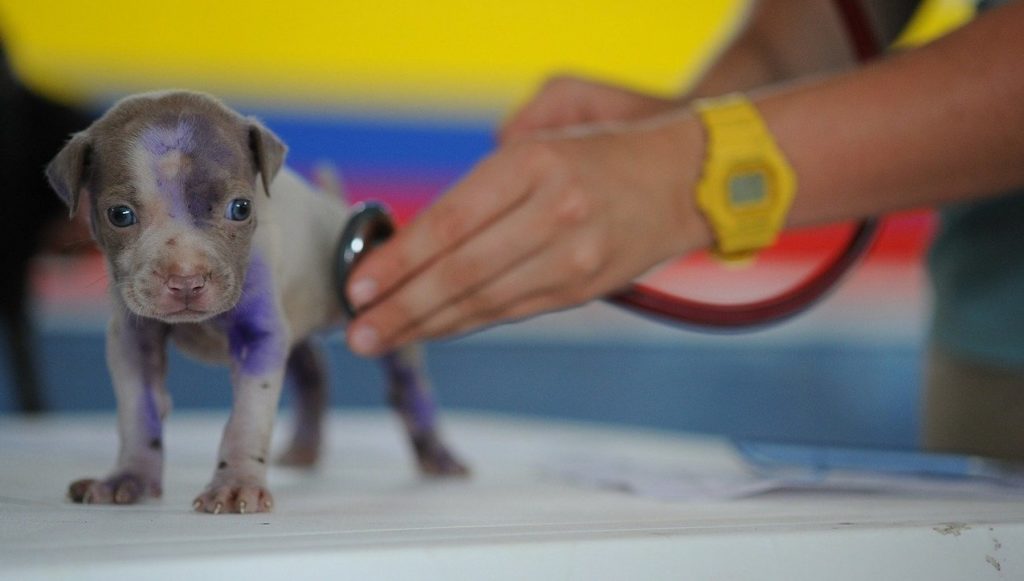
If you would like to pursue your childhood dream, start earning your DVM degree today. Don’t think it’s too late to start learning. It is never too late to begin a new career! Nowadays, thanks to many online courses, you do not have to worry that you live too far away from universities offering veterinary medicine studies or are too busy to travel to a facility every day.
You can get all the theoretical knowledge without leaving your home. Obviously, to work directly with animal patients, you will have to take a practical veterinary course because it demands a lot of experience and skills.
Nevertheless, an online course can be a good starting point, or it can even be enough if you just plan to assist veterinary doctors in their animal treatment work. Good luck!
Take a look at this before you go: The Best Doctor of Environmental Science and Engineering (D.Env.) Degree Programs: Salary & Information
